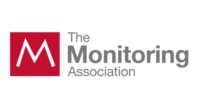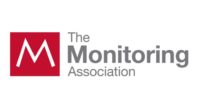TMA and ESA Dispute Google Statement

Recent reporting by Business Insider, CNN Business and many other publications have highlighted the undisclosed, on-board microphone discovered in Google’s Nest Guard Security Device — raising serious privacy concerns among consumers. The Monitoring Association (TMA) and the Electronic Security Association (ESA), trade associations representing professionals who install and monitor security and life safety technologies in homes and businesses, call into question the validity of Google’s published statements concerning the use of microphones in security devices. According to TMA and ESA, statements such as, “security systems often include microphones to provide features that rely on sound sensing,” misrepresent the vast majority of today’s residential security systems installed throughout the country.
Since audio recording includes privacy and legal complexities, it’s not extremely common in residential installations, according to the associations. Security professionals and integrators consult with customers and ensure all federal and state laws are abided by.
“Adding audio surveillance can certainly make for a more robust system,” said ESA President Chris Mosley. “We’re seeing exciting advancements in the audio surveillance category, such as acoustic sensors and microphones that can help us detect gunfire or when voices become elevated that could indicate potential violence. However, sweeping statements to infer that residential systems commonly have this feature are simply not accurate.”
Louroe Electronics, an ESA Member company and 40-year-old manufacturer of audio-based technologies, concurs with this analysis. “Sound-based technology in security systems is common in law enforcement, institutional and smart city installations,” said the company’s CEO, Richard Brent. “However, the use of microphones for surveillance in residences is extremely rare on account of heightened expectations of privacy.”
“Security systems are now an important part of the customer home experience in that we can integrate with audio assistance,” said Ivan Spector, TMA president. “However professionally installed and monitored security systems are not designed to record data and conversations unbeknownst to our customers.”
According to both associations, adding microphones and audio capabilities to security systems adds another level of precaution that must be taken to install the system in a way that protects the privacy of the consumer.
Looking for a reprint of this article?
From high-res PDFs to custom plaques, order your copy today!





